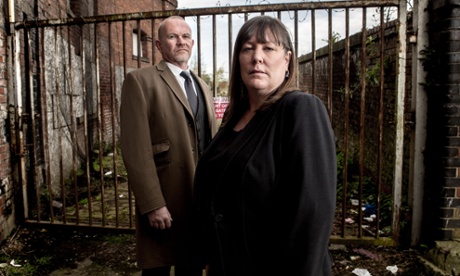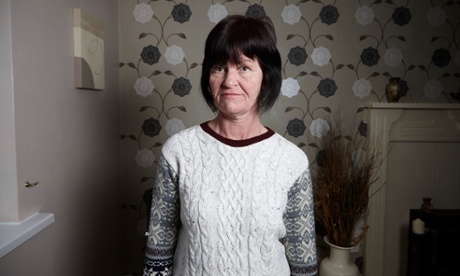
The Detectives (BBC2) is a documentary series that shames the typical police procedural with its relentless depiction of procedure: no maverick cops or bursts of deductive inspiration; just a lot of people doing the right things in the right order.
Procedure is all the more important for these particular cops, who work in the Serious Sexual Offices Unit of Greater Manchester Police, and are specially trained to do the grimmest of all jobs.
“Murder’s not that specialist,” said Detective Jon Chadwick. “General-purpose detectives can do murder all day long. They’re not best equipped to deal with rape.”
Threaded through the series is the unit’s biggest case – that of the DJ Ray Teret, an associate of Jimmy Savile’s who was sentenced to 25 years for a string of rapes and indecent assaults on underage girls – and this second episode was dedicated largely to his three-day interrogation. Hours of disclosure, in which the police put one accusation after another (16 victims had come forward) to Teret, are followed by the “challenge” phase, during which Teret is confronted by the full weight of the case against him. Teret, now in his 70s, is a haunted-looking figure who goes about with several sheets of A4 hanging from his mouth, even when he has both hands free. At first this appeared to be part of an effort to conceal his face from the camera, but over time it came to seem like a creepy fixation, not to say a hygiene issue for anyone required to handle his paperwork.
Teret “no comments” his way through the grilling, but even this has a horrible element of drama, because the viewer knows more about what the police know than Teret does. There are points when the documentary even takes on the look of a gritty police drama: the shaky camera trailing a tactical aid unit to an address in the dark – underscored by mournful music – could have served as the cold opening of an episode of Happy Valley. Except in real life, of course, there was no one at home to arrest. They had to pack up their stuff and go off to find the suspect round his dad’s.
The access allowed to the film-makers for this three-part series – shown over three nights – was amazing, and also harrowing: victim’s statements, 999 recordings and the nature of the offences made for uncomfortable viewing. But the unassuming dedication of the men and women who do the job meant it was worth watching in the end. Detective Rod Carter was given the final word on the energy devoted to historical sexual offences from another era: “It was a different time then,” he said. “But raping schoolgirls was still raping schoolgirls.”
Last week’s Benefits Street (Channel 4) focused on the sense of community enjoyed by the residents of Kingston Road, Stockton-on-Tees, while portraying members of the popular press as the enemies of privacy, accuracy and decency, wholly without the programme-makers’ knack for even-handedness. This week, the portrait had a few more warts on: Julie’s son Cameron got expelled from school twice – no mean feat – and Maxwell, the not-terribly-enterprising pot dealer, was shown to be in possession of more cash than the Daily Mail would think appropriate for someone on benefits.

But what need have the residents of the Tilery estate of outside enemies, when their most trenchant critic lives among them? “They’re nothing but human parasites,” said John of his own neighbours, going on to suggest that all their children should have been drowned at birth. John is elderly and a bit blurred out – he clearly hasn’t given permission for his face to be shown. It’s too bad for him he allowed his words to be heard. John has a habit of getting into shouting matches with the young people of Kingston Road, and coming off worse. “My shit is better than your face,” he said to one.
Thanks to his habit of issuing foul-mouthed invective from his front door all day, John has fallen out with virtually everybody, to the extent that the police were trying to move him out for his own protection. To be fair, John used to get on well enough with his neighbours before he suffered a stroke a few years back. “It did affect my communication skills,” he said. I’ll say.
After last week’s instalment I was worried that in its overwhelming desire to stay onside with its subjects, Benefits Street might inadvertently make the case for the therapeutic effects of grinding poverty. But the upside of struggling to get by wasn’t much in evidence in this outing. If Benefits Street reminds us of one thing, it’s that being poor isn’t a lifestyle choice. It’s just what happens when all your options evaporate.







